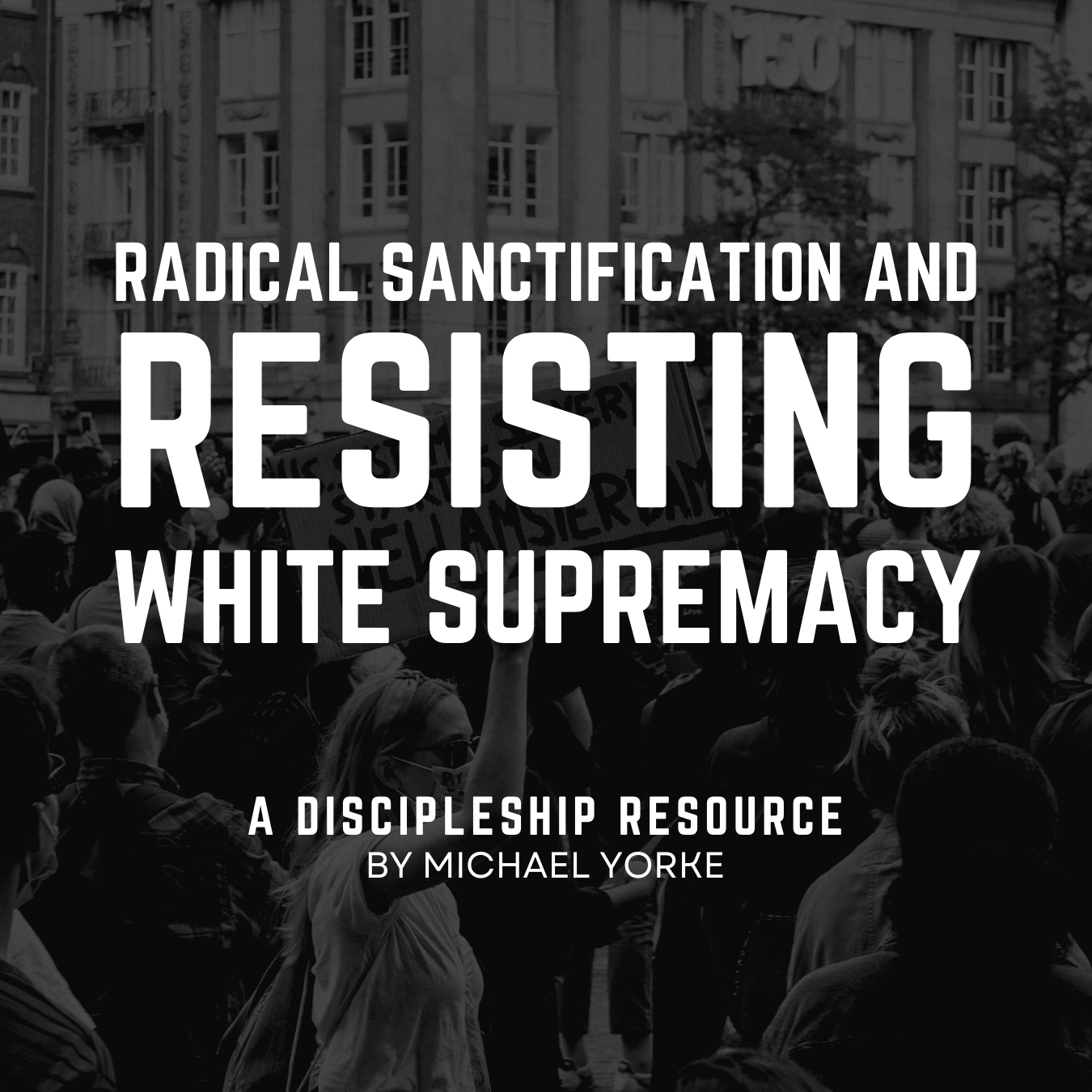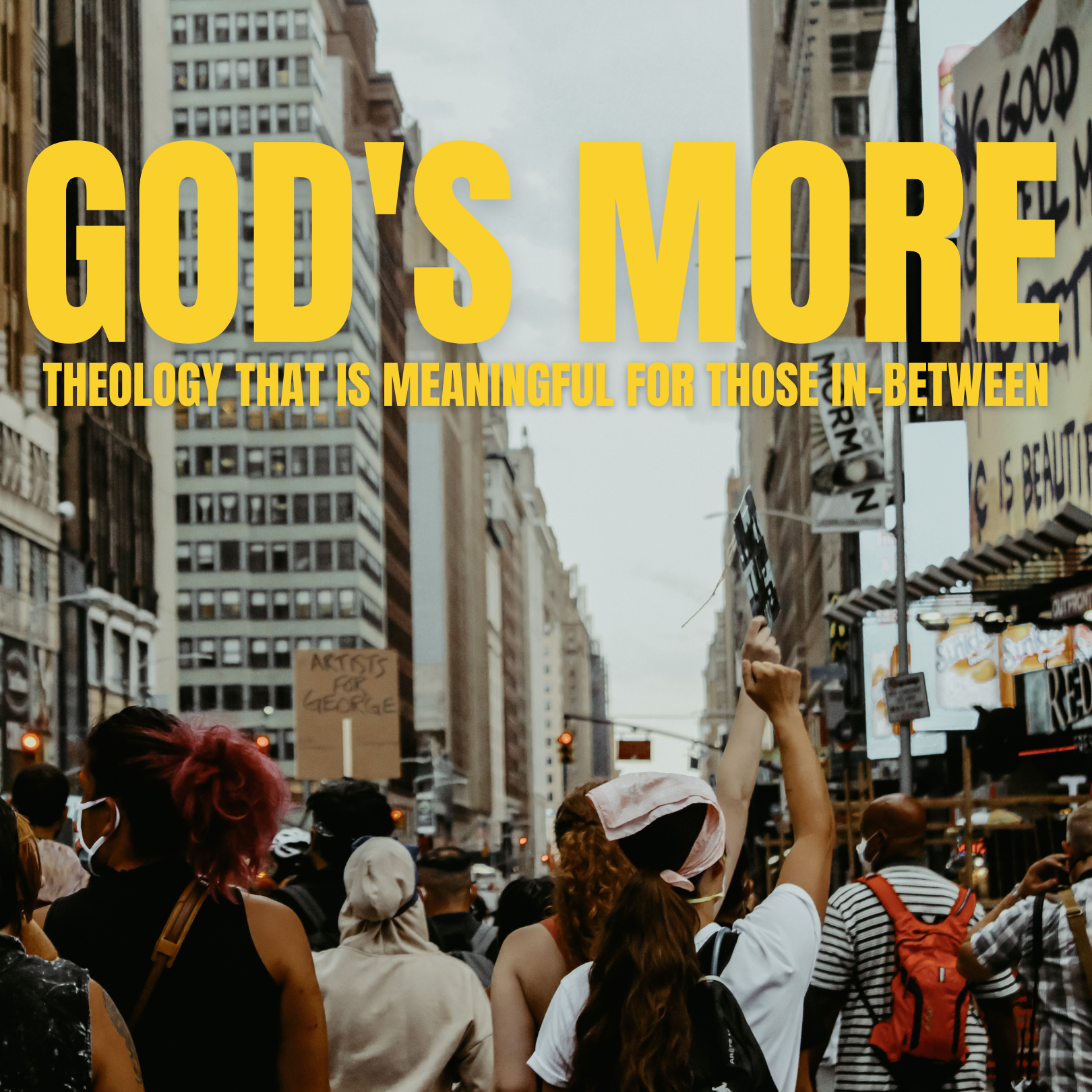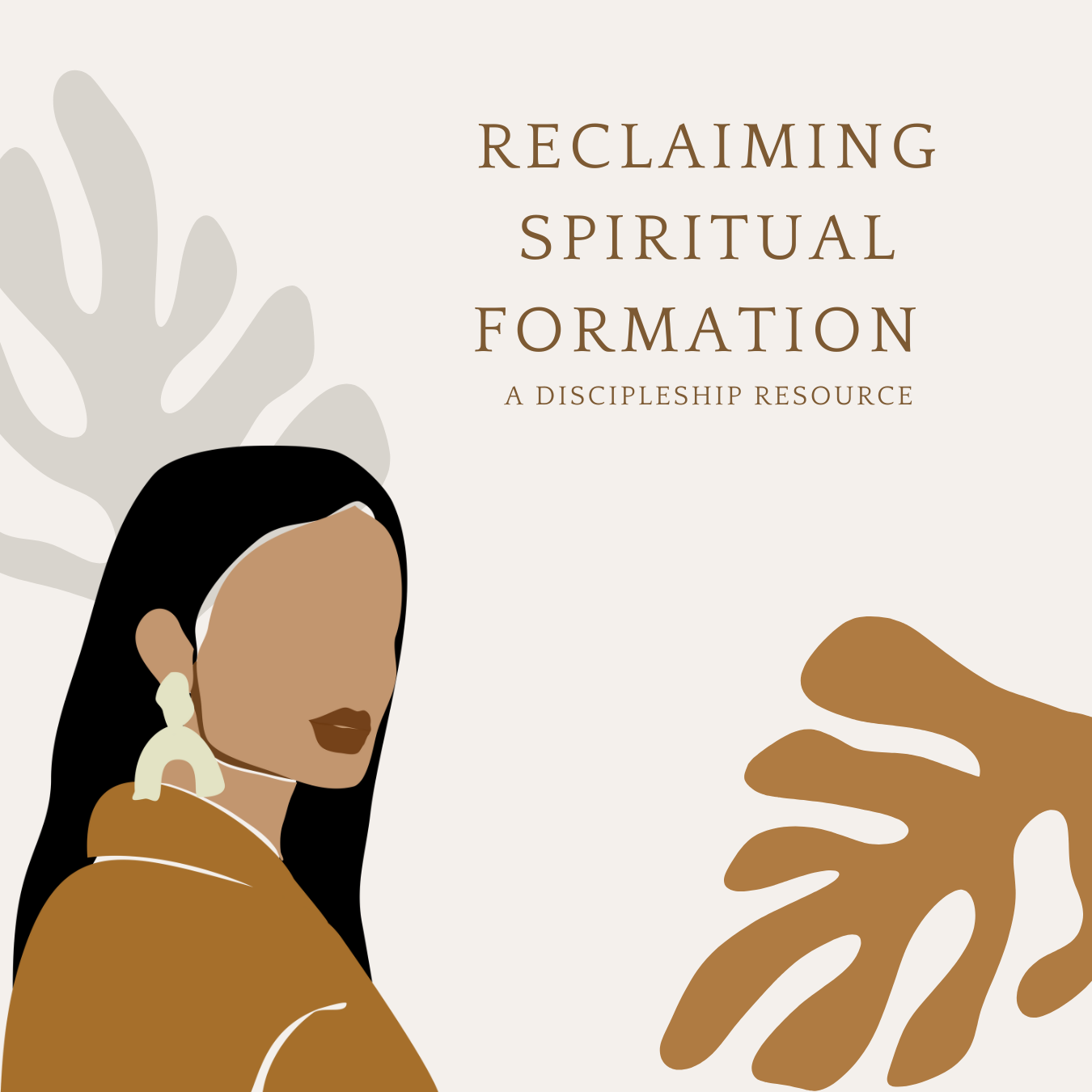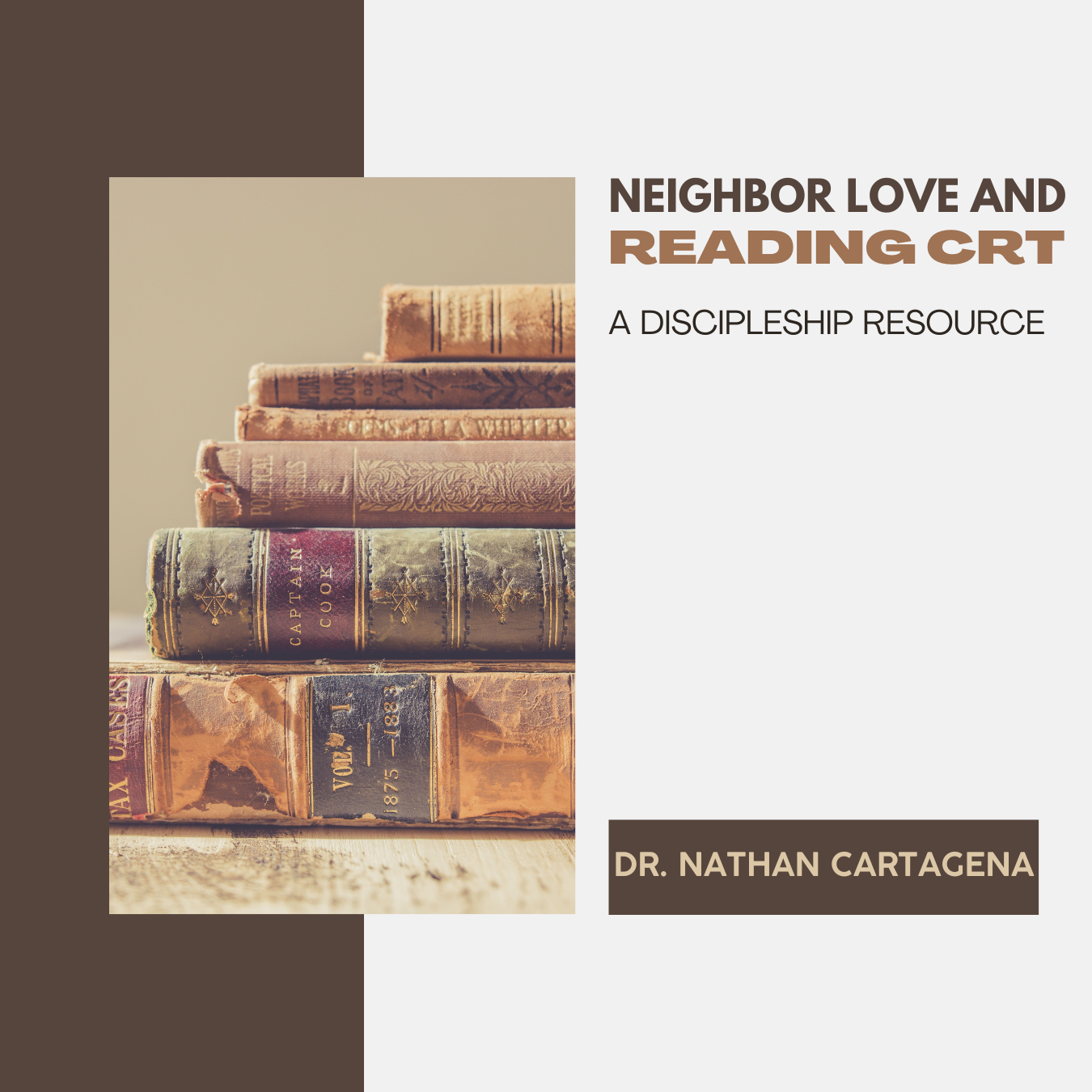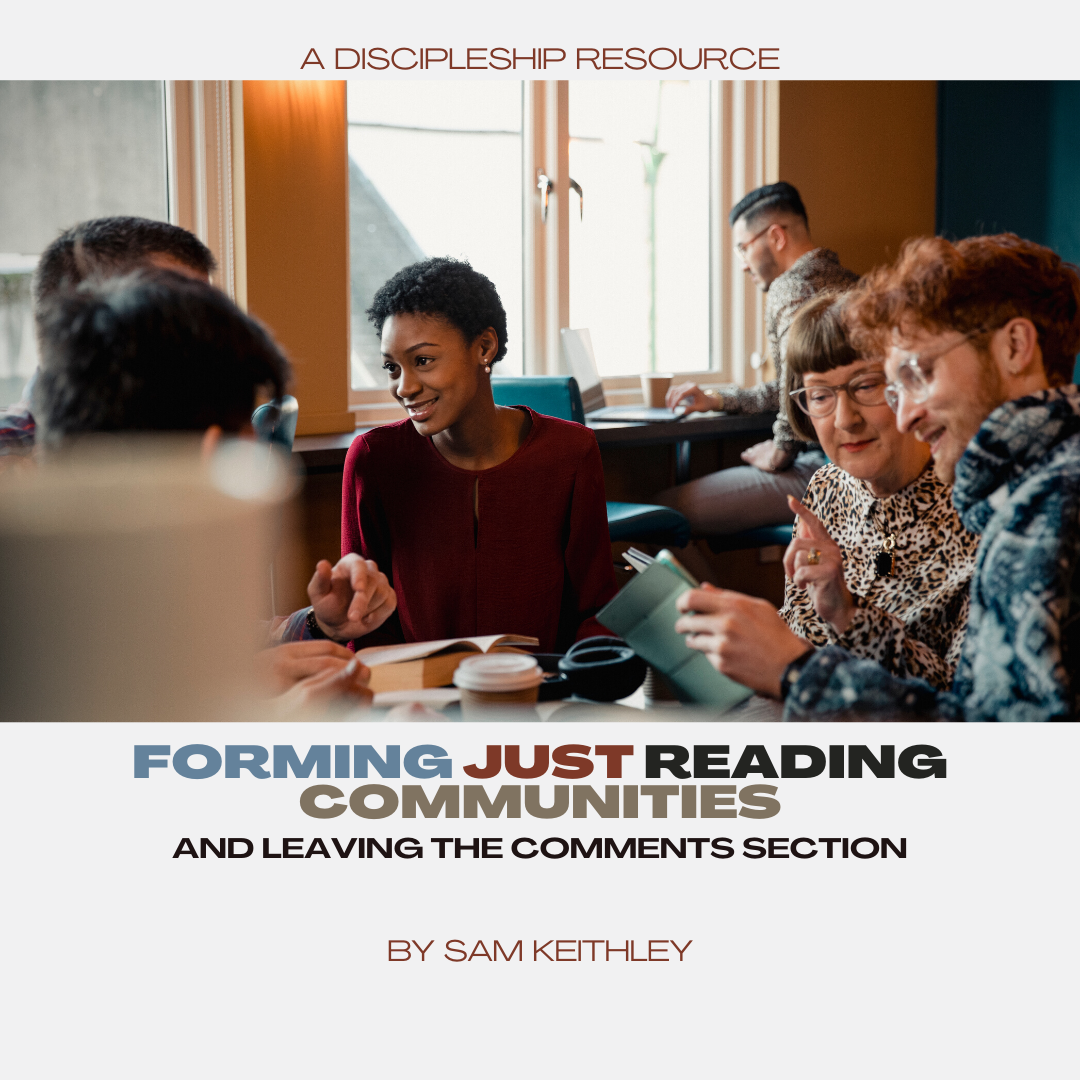This article is from a forthcoming series in the Moody Center magazine. To learn more about the magazine and Moody Center, subscribe to their newsletter.
We fight the power of sin by the power of the Holy Spirit. This simple and uncontroversial claim at the heart of the Christian doctrine of sanctification contains radical power, since the Spirit also accomplishes the most radical human transformation—from death to life. Furthermore, scripture’s commands to walk by the Spirit imply that the Christian is to live a life marked by this radical transformation. It is in this demand—of radical transformation—that this simple claim finds its complexity, its challenge, and its resistance even among the most pious.
This article makes another deceptively simple claim—white supremacy is sin. This claim is, like the first, apparently uncontroversial. Most Christians would not hesitate to affirm it. However, many Christians would be hard pressed to accurately define white supremacy, locate its historical or present manifestations, or trace its effects in their own lives. Worse yet, some have so limited the scope of the problem of white supremacy that it is hardly discernible after the U.S. Civil Rights Movement apart from the most explicit instances. Under such conditions, the claim that white supremacy is sin becomes an almost meaningless platitude, a theological answer in search of a question.
If the above premises are true--that we fight sin by the power of the Holy Spirit and that white supremacy is sin--then white supremacy should be radically resisted in the lives of Christians by the power of the Holy Spirit. But precisely how do we fight sin by the Spirit’s power? What does it mean to call white supremacy sin? And what might it look like to radically resist white supremacy in our lives? Before attempting to address these important questions, however, it is necessary to define what I mean by white supremacy.[1] This article understands white supremacy to be a globally expressed racialized social system, within which those deemed “white” generally enjoy disproportionate material and social privileges in relation to those deemed “non-white.”[2] In what follows, I take this definition for granted and explore some of its features as they support my argument that white supremacy is sin and should be radically resisted by the power of the Holy Spirit.
How the Spirit Reveals Sin
Part of the Spirit’s power for fighting sin is the Spirit’s role in identifying it. The Spirit helps us to identify sin through at least three means: scripture, circumstance, and community. In scripture we find a standard of personal and social goodness in Christ and in the kingdom of God to which we have never lived up. We also find various examples of social and individual evil by which we can evaluate our own shortcomings. For example, when the epistle writer says “you have dishonored the poor man. Is it not the rich who oppress you and personally drag you into court?” (James 2:6, NASB), we should ask ourselves critical questions about how sin has infected our understanding of wealth, poverty, and the ways our decisions serve to dishonor the poor and elevate the rich.
The Spirit also reveals sin through circumstance or, in other words, through history. If, as we saw above, the Spirit reveals the sins of partiality and oppression of the poor through scripture, historical circumstance teaches us that wealth, poverty, and oppression of the poor exist today along explicitly racial lines.[3] Colonialism, slavery, apartheid, and imperialism were and are racial projects as much as they are economic ones. Globally, many of the countries considered “third world” (or worse) are filled with people deemed “non-white” by the Anglo empires who have exploited them and their resources for centuries. Therefore, one of the features of this racialized social system which the Spirit reveals to us as sin is the historical reality that it was accomplished and is maintained through exploitation, through the oppression of the poor.
The Spirit also reveals sin through community. In scripture it was most often the voice of the prophets urging God’s people toward repentance for sin. In our own day, the Black Church has long provided a prophetic voice in opposition to the sins of white supremacist society. Take for example, Frederick Douglass’s recognition of the incompatibility of slaveholding piety with the Christianity of Christ, James Cone’s reflections on the practice of lynching and the lynching of Jesus, or Kelly Brown Douglas’s call to action regarding the racialized implications of “stand your ground” laws.[4] Regrettably, these and many other cries of oppressed humanity have been largely ignored under the spell of white supremacy. Instead of graciously receiving correction and repenting of sin, many Christians have grieved the Spirit by dismissing the cries of the oppressed as exaggerated or untrue. In this way, white supremacy has silently flourished in the hearts, minds, and hands of countless Christians.
The Kinds of Sin the Spirit Reveals
If we have spent any amount of effort resisting sin in our lives we know that there are levels to this. On the surface, there are behaviors which we should discontinue. On another level there are impulses and motivations underlying our behaviors which also need to be interrogated and transformed by the renewing of our minds. Jesus communicated this truth in his sermon on the mount when he raised the standard for holy living from the level of action to the level of the impulses and motivations of the heart (Matt. 5:21—48). We can say, then, that the Spirit reveals both overt and covert sins—the outward expressions of sin as well as the sins working quietly below the surface.
This dynamic is also true of white supremacy. Many today only discern white supremacy in examples like the murder of the Emanuel Nine or the El Paso mass shooting when the assailants explicitly claim white supremacy as their motivating ideology. But these incidents, along with other explicitly racist activity in our society are examples of the white supremacist sin that sits overtly on the surface. In addition to these, the Spirit is revealing the deeper, covert layers of white supremacist sin. As one example, while the apartheid Jim Crow policies of the last century enforced de jure segregation in the U.S., the post-Civil Rights era has seen de facto racial segregation across the country. Some have noted how “current residential segregation has roots going back at least to the Great Depression” through means such as federal redlining practices, restrictive covenants enforced by neighborhood associations and realtors, and even mob violence.[5] When we consider the fact that where one lives in our society determines the quality of education, medical care, and daily nourishment one will receive, the racial configuration of our neighborhoods takes on a more sinister character. Furthermore, where one lives determines the kind of police surveillance one will experience on a daily basis and one’s criminal history (over)determines one’s economic and social prospects.[6] In this way, racial segregation has far-reaching effects which disproportionately harm those deemed “non-white” in our society. The insidious nature of white supremacist sin takes this reality a step further by attempting to justify this situation by ceaselessly blaming “non-white” communities for their own disenfranchisement. In this example (and through many others) we can see how the realities of covert white supremacist sin may lurk just beneath the surface of our actions. However, through the voices of the oppressed and through the work of pastors, theologians, historians, philosophers, and many others, the Spirit is revealing just how prevalent the insidious sins of white supremacy are in our world.
The Spirit and Radical Transformation
So, how does the Spirit call us to address the sins of white supremacy in our lives? The same way we are called to address all sin—through radical transformation, even daily death. The Spirit enables us to plumb the depths of our actions, impulses and motivations, even the ones that are infected with the insidious evil of white supremacy, and to walk in newness of life and liberation. Concretely, this means that we must (1) rely on the Spirit to reveal white supremacy in our lives through scripture, circumstance, and community, we must (2) rely on the Spirit to show us not only our overt sins but to dig deeper to find the covert workings of white supremacy in our own lives and communities, and we must (3) rely on the Spirit’s help to radically root out the sins of white supremacy from our lives by dying to ourselves daily and living into the new life that the Spirit makes possible.
About Michael Yorke
Michael Yorke completed a bachelor's degree in Urban Ministry from Moody Bible Institute and a master's degree in Historical Theology from Wheaton College Graduate School. He is currently enrolled in the Master of Theological Studies program at Emory University's Candler School of Theology. He is interested in race, pneumatology, and theologies of liberation. In his (hypothetical) free time, Michael is either working on a new playlist, watching a movie, or trying to remember how to play basketball. He is married to Chelsea and their first child, Jay, was born in December.
Further Reading
Lopez, Ian Haney. “The Social Construction of Race: Some Observations on Illusion, Fabrication, and Choice.”
Bonilla-Silva, Eduardo. Racism Without Racists: Color-Blind Racism and the Persistence of Racial Inequality in America.
Jennings, Willie James. The Christian Imagination: Theology and the Origins of Race.
Thurman, Howard. Jesus and the Disinherited.
Raboteau, Albert J. A Fire in the Bones: Reflections on African-American Religious History
Comblin, José. The Holy Spirit and Liberation.
Zahl, Simeon. The Holy Spirit and Christian Experience
Footnotes
[1] It is important to note also that white supremacy does not exist in a historical vacuum; a long history of social, political, and theological factors have resulted in its current configurations. For more on this, see the recommended reading list at the end of this article.
[2] My definition here relies heavily on Eduardo Bonilla-Silva’s Racism Without Racists: Color-Blind Racism and the Persistence of Racial Inequality in America. Bonilla-Silva writes: “When race emerged in human history, it formed a social structure ( a racialized social system) that awarded systemic privileges to Europeans (the peoples who became ‘white’) over non-Europeans (the peoples who became ‘non-white’). Racialized social systems, or white supremacy for short, became global and affected all societies where Europeans extended their reach. I therefore conceive a society’s racial structure as the totality of the social relations and practices that reinforce white privilege.”
[3] This is likely to be the most contested premise of this article; however, this claim cannot be sufficiently defended in the space allotted here. See the following resources for evidence supporting this claim: Mehrsa Baradaran’s The Color of Money: Black Banks and the Racial Wealth Gap (2017); Michelle Alexander’s The New Jim Crow: Mass Incarceration in the Age of Colorblindness (2010); Imani Perry’s More Beautiful and More Terrible: The Embrace and Transcendence of Race in America (2011); Eddie S. Glaude Jr.’s Democracy in Black: How Race Still Enslaves the American Soul (2016); Keeanga-Yamahtta Taylor’s Race for Profit: How Banks and the Real Estate Industry Undermined Black Homeownership (2019)
[4] See Frederick Douglass’s Narrative of the Life of Frederick Douglass: An American Slave; James Cone’s The Cross and the Lynching Tree; and Kelly Brown Douglass’s Stand Your Ground: Black Bodies and the Justice of God.
[5] See Jemar Tisby’s The Color of Compromise: The Truth about the American Church’s Complicity in Racism.
[6] See Dominique DuBois Gilliard’s Rethinking Incarceration: Advocating for Justice that Restores
Articles like this one are made possible by the support of readers like you. Donate today and help us continue to produce resources for the mestizo church.

